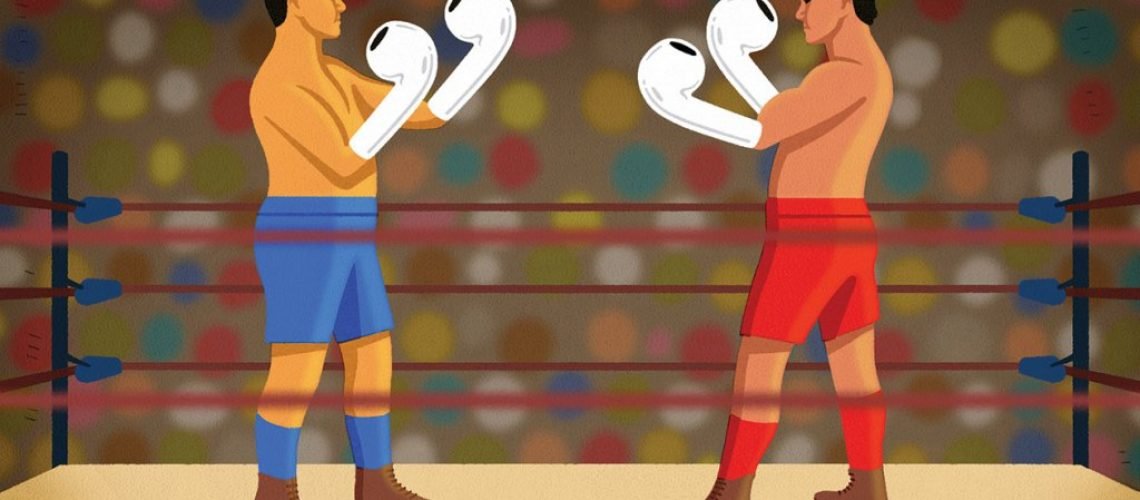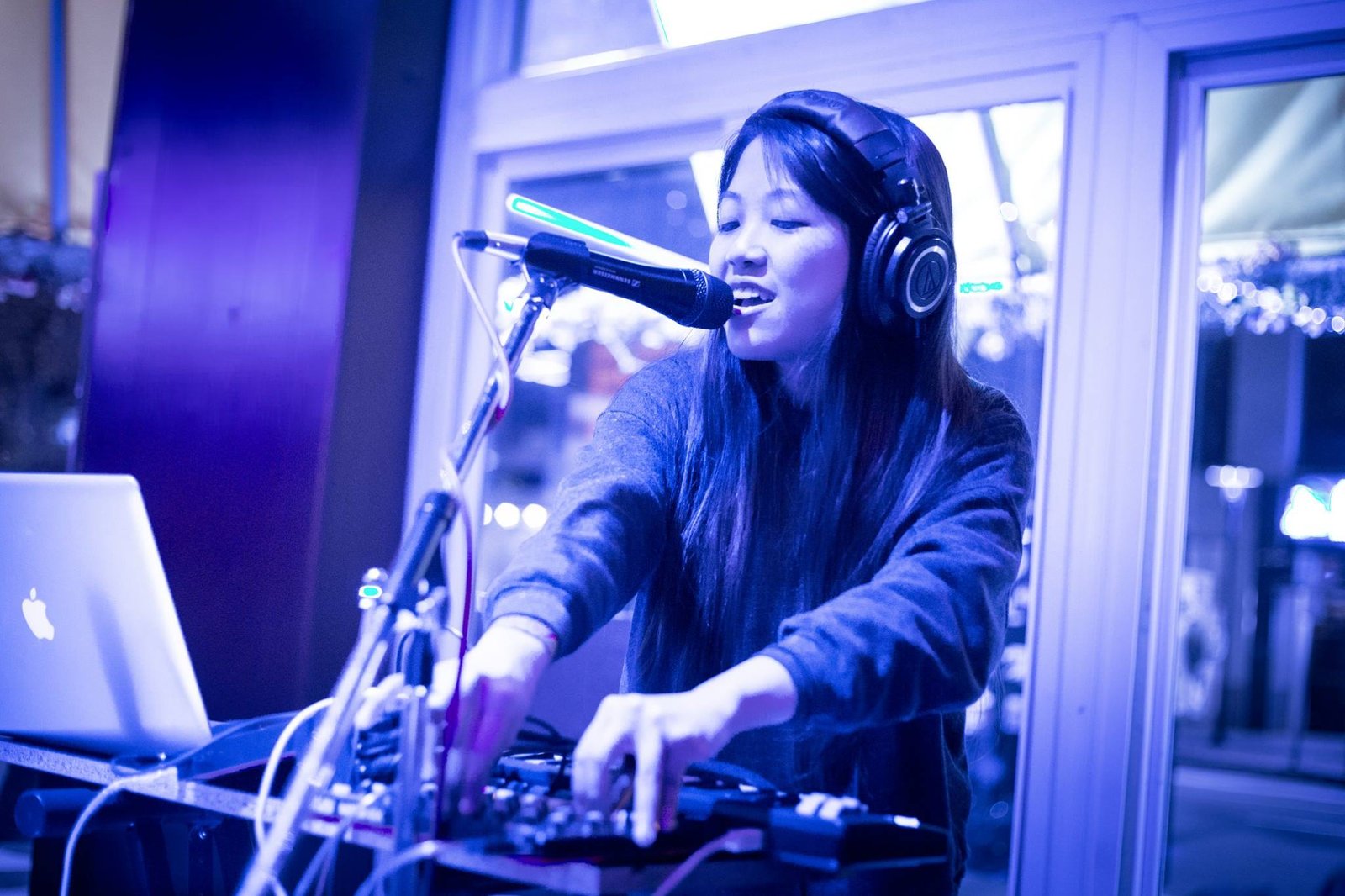HONG KONG — Since Chinese regulators forced music streaming platforms to end exclusive licensing deals with global labels last year, Tencent Music Entertainment has portrayed itself as China’s public face of copyright adherence. In its most recent annual report, the company says it is “committed to protecting music copyright, and our leading role in China’s music copyright protection efforts has made us a partner of choice for major domestic and international music labels and other content partners.”
TME’s biggest rival in China, NetEase Cloud Music, doesn’t see it that way. The Hangzhou-based streaming company claims that, domestically, TME is engaging in brazen acts of copyright infringement that constitute “unfair competition” that has “been intensifying [in] the last two years.” In a lengthy statement in April describing a lawsuit against TME, NetEase highlighted the other company’s alleged use of “song washing” to create near-duplicate versions of songs with modified notes, lyrics or arrangements that fool listeners and drive online traffic.
In the same suit, NetEase also accuses TME of other acts that violate copyrights or constitute unfair competition, including copying aspects of its app design and allowing users to bypass copyright protection in order to play songs only licensed by NetEase.
“We urge TME to immediately rectify its products and businesses and cease all acts of unfair competition,” NetEase posted in a statement on social media platform Weibo, including “taking down infringing works” and “stopping the practice of impersonating and washing songs.”
TME fired back on Chinese social media platform WeChat: “TME believes in truth and integrity, and has already taken appropriate legal actions,” said Chen Mo, a company representative. He noted NetEase’s own history of copyright infringement, including a 2019 verdict in which a Shenzhen court ordered NetEase to pay TME 850,000 yuan ($126,000) for producing a fake digital album with as many as 178 of Taiwanese singer Jay Chou’s songs; the collection was offered on NetEase Cloud Music after its sublicense had expired, infringing the copyright of the sound recordings. And, Mo added, “multiple copycat versions” of popular songs by TME artists like Wen Yixin remain available on NetEase Cloud Music.
The tit for tat illustrates the Wild West nature that still pervades China’s intellectual property landscape, even as the industry has made strides over the past decade to reform a market that IFPI says that before 2011 was essentially 99% piracy. TME and NetEase have been making accusations against each other for years, but they are now more willing to air their feuds in Chinese courts and in public, analysts say, since they both have become public companies.
“If we had not been so disturbed and hurt by this long-standing unfair competition that we could not stand it, we would not have been so rash as to publicize this scandalous situation in our industry,” NetEase says in its statement.
The legal action comes as competition heats up in the Chinese music streaming sector amid a regulatory crackdown. In 2021, TME reached 76.2 million paying users, up 36.1% from 2021, while NetEase grew its monthly subscribers to 28.9 million, up 80.6% from 2020. Now new competitors are emerging: ByteDance, which owns TikTok, launched its music streaming service, Qishui Yinyue (“Soda Music”), in March.
The NetEase lawsuit is the first case brought since China implemented an anti-monopoly law last July aiming to restore market competition. One month later, TME said it had relinquished the exclusivity of most of its licenses, including deals with Universal Music Group, Sony Music Entertainment and Warner Music Group. The labels had previously let TME license recorded music for its own platforms, plus sublicense tracks to its local rivals, including NetEase Cloud Music.
China’s State Administration for Market Supervision fined TME for antitrust violations related to its 2016 acquisition of China Music Corporation, saying that TME — which owns the apps QQ Music, Kuwo Music, Kugou Music and karaoke platform WeSing — controlled over 80% of exclusive music rights after the merger.
A NetEase representative declined to show Billboard a copy of the actual lawsuit, which is not currently available, saying that its statement “covered most issues mentioned in the litigation.” The company says its claims against TME are based on anti-competition law, copyright law in China “and other relevant laws and regulations.”
With limitations on exclusive access to international labels’ recorded-music repertoire, Chinese streaming platforms are generating more music in-house and becoming bigger distributors of user- generated content. NetEase says TME is pirating or plagiarizing many of those compositions by producing fake or “song- washed” tracks (in essence, soundalikes) that are intended to mislead users into playing them. Since 2020, NetEase contends, TME has released nearly 1,000 songs with the same name as its popular songs and choruses that are the same as or similar to the original songs.
Proving the claims is not so easy: “In China, there is legal ambiguity as to what is tolerable and what is not,” says Charlie Chai, vice head of research at 86Research. “Some cases are blatant infringements, but other cases can be subtle and controversial,” he says. Chinese copyright law protects compositions and lyrics as well as the distribution rights of a song’s producer, copyright lawyers tell Billboard, but it doesn’t clearly define the rights in the song’s arrangement. “Therefore, if the ‘song-washing’ process is relatively sophisticated and only refers to part of the original arrangement, then it is difficult to constitute plagiarism in a legal sense,” says Ding Tao, a lawyer at Guangdong Zhuojian Law Firm.
While amateurs — individual users uploading their own songs — are sometimes behind the song-washing, more often professional organizations are trying to monetize it, says Chai. NetEase says that over 5,000 “counterfeit and plagiarized” versions of its songs “Misplaced Time,” “Under the Sea,” “Masquerade” and “Delete It” have appeared on TME’s platforms and made it onto their official charts.
NetEase also says TME has released its licensed songs under similar artists’ names — like when TME allegedly used “Old Pan Next Door” to impersonate Old Fan Next Door, a NetEase artist. The practice could constitute unfair competition if streaming platforms are pushing the songs and recommending them to users, says Yunting You, a partner at DeBund Law Offices.
Beyond claims of copyright infringement, NetEase contends that earlier this year Kuguo Music and QQ Music copied its “Listen Together” feature on its app, with Kuguo’s “Listen Together” version (named the same) being a “pixel-perfect” version of what NetEase had introduced a year earlier.
TME’s Mo, in his post responding to NetEase’s lawsuit, pointed to records indicating that Tencent Music’s product development and patent application preceded that of NetEase Cloud Music.




